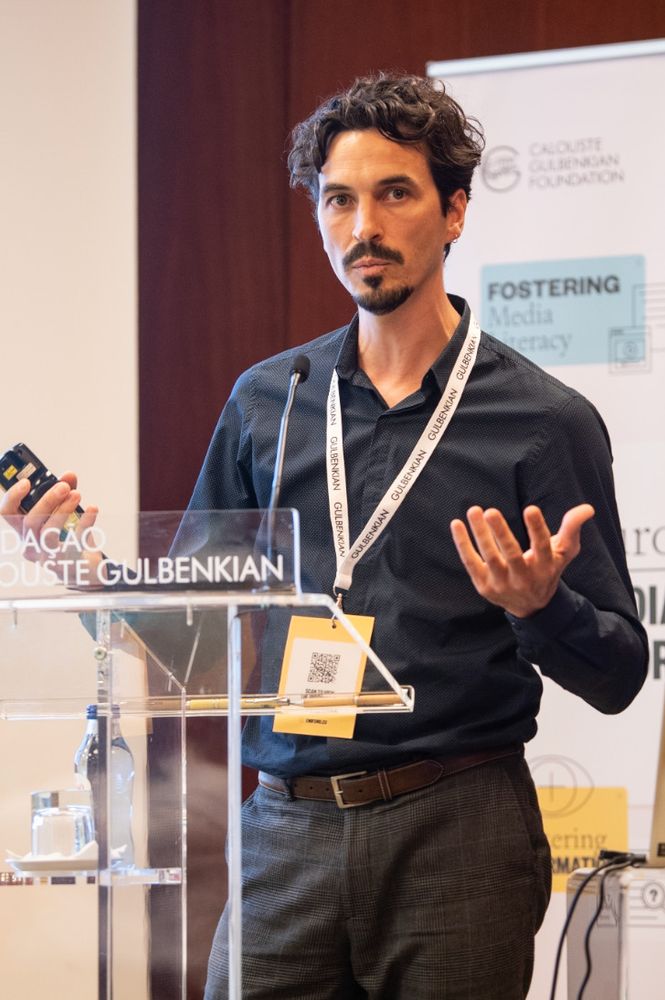
➡️ science.feedback.org
French account: @sciencefeedback-fr.bsky.social
Across all platforms except LinkedIn, accounts spreading misinformation get more reach per follower than credible accounts
On YouTube: low-credibility accounts get 8x more interactions per follower than high-credibility ones

Across all platforms except LinkedIn, accounts spreading misinformation get more reach per follower than credible accounts
On YouTube: low-credibility accounts get 8x more interactions per follower than high-credibility ones
⚠️ TikTok has the highest prevalence of misinformation: 20% of posts on public-interest topics contain false or misleading info.
Facebook is 2nd at 13%
LinkedIn has the lowest prevalence at just 2%, showing platforms can design systems that don’t reward falsehoods

⚠️ TikTok has the highest prevalence of misinformation: 20% of posts on public-interest topics contain false or misleading info.
Facebook is 2nd at 13%
LinkedIn has the lowest prevalence at just 2%, showing platforms can design systems that don’t reward falsehoods

It looked like vaccinated people had higher mortality.
But that conclusion ignores a crucial question. 👇
2/7

It looked like vaccinated people had higher mortality.
But that conclusion ignores a crucial question. 👇
2/7

That alone doesn’t invalidate it—but other issues do.
For example, it lacked proper peer review.
In contrast, IPCC reports involve hundreds of authors and a transparent review process.

That alone doesn’t invalidate it—but other issues do.
For example, it lacked proper peer review.
In contrast, IPCC reports involve hundreds of authors and a transparent review process.
Our monthly newsletter (in English and French) helps you track the latest misinformation trends and what scientists are really finding while keeping an eye on policy in this domain.

Our monthly newsletter (in English and French) helps you track the latest misinformation trends and what scientists are really finding while keeping an eye on policy in this domain.


▪️There were 7 responses made by the platform within 2 minutes or less, potentially indicating automated reviews.


▪️There were 7 responses made by the platform within 2 minutes or less, potentially indicating automated reviews.
▪️Of 125 flagged posts linked to Russian state media and Kremlin-affiliated operations, only one was removed; the majority received no enforcement action, with over 50 reports going unanswered.


▪️Of 125 flagged posts linked to Russian state media and Kremlin-affiliated operations, only one was removed; the majority received no enforcement action, with over 50 reports going unanswered.
In the presentation below, you can see that LinkedIn has the lowest prevalence of mis/disinformation (~2%), while TikTok has the highest (~20%).

In the presentation below, you can see that LinkedIn has the lowest prevalence of mis/disinformation (~2%), while TikTok has the highest (~20%).

To quantify the prevalence of misinformation across major platforms, @sciencefeedback.bsky.social submitted formal data access requests. Here’s what we received:

To quantify the prevalence of misinformation across major platforms, @sciencefeedback.bsky.social submitted formal data access requests. Here’s what we received:




We investigated.
🔗 science.feedback.org/slay-news-fr...

We investigated.
🔗 science.feedback.org/slay-news-fr...
“We are confident broadly that both winters and the coldest days of the year are warming rapidly pretty much everywhere, and faster than annual average temperatures have been warming.”




“We are confident broadly that both winters and the coldest days of the year are warming rapidly pretty much everywhere, and faster than annual average temperatures have been warming.”
Science Feedback interviewed 5 climate scientists to explore this complex issue: science.feedback.org/cold-snaps-d...

Science Feedback interviewed 5 climate scientists to explore this complex issue: science.feedback.org/cold-snaps-d...

As AI adoption grows, so do concerns about its environmental impact. But estimating the footprint of tools like #ChatGPT is more complex than viral posts suggest.
We explored this issue in our recent insight article:
science.feedback.org/training-and...

As AI adoption grows, so do concerns about its environmental impact. But estimating the footprint of tools like #ChatGPT is more complex than viral posts suggest.
We explored this issue in our recent insight article:
science.feedback.org/training-and...





